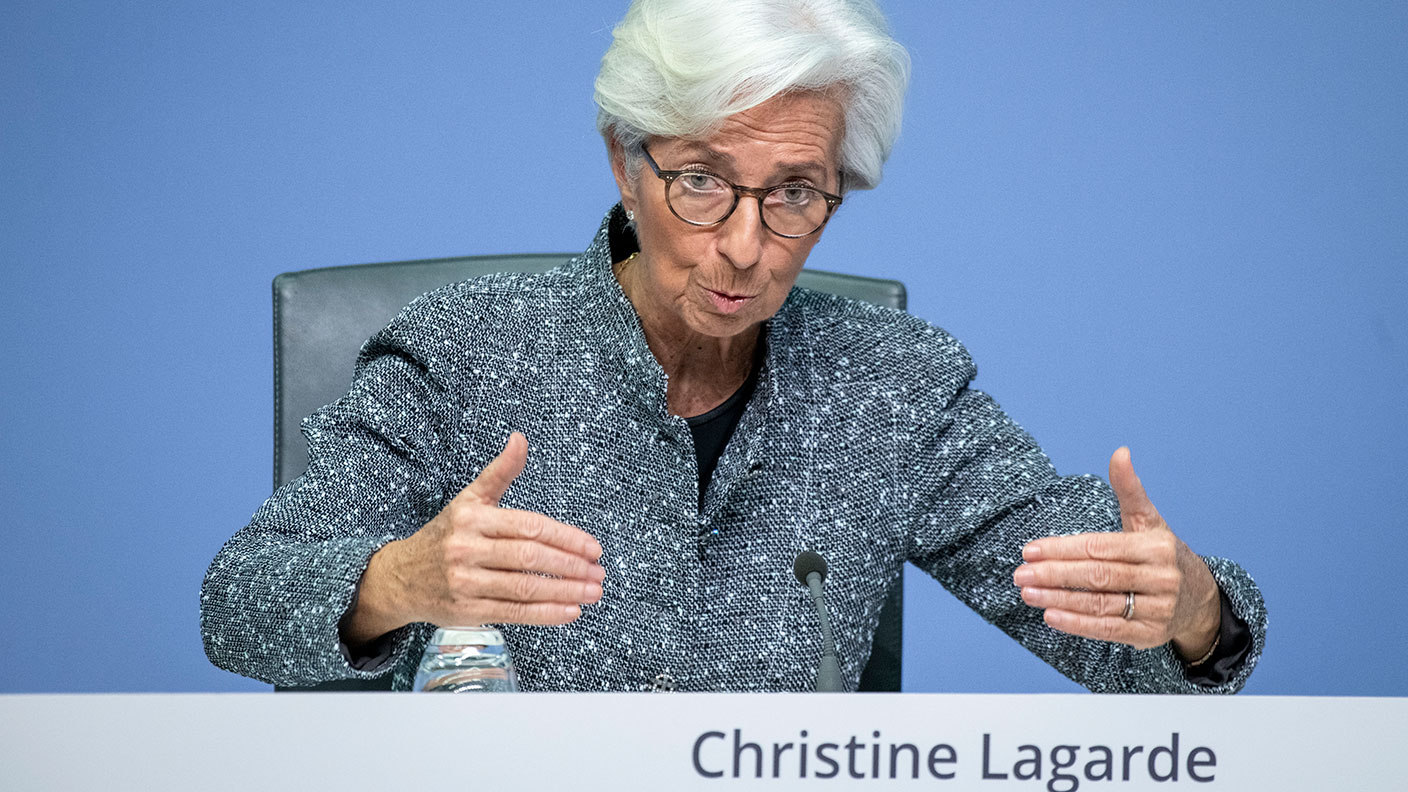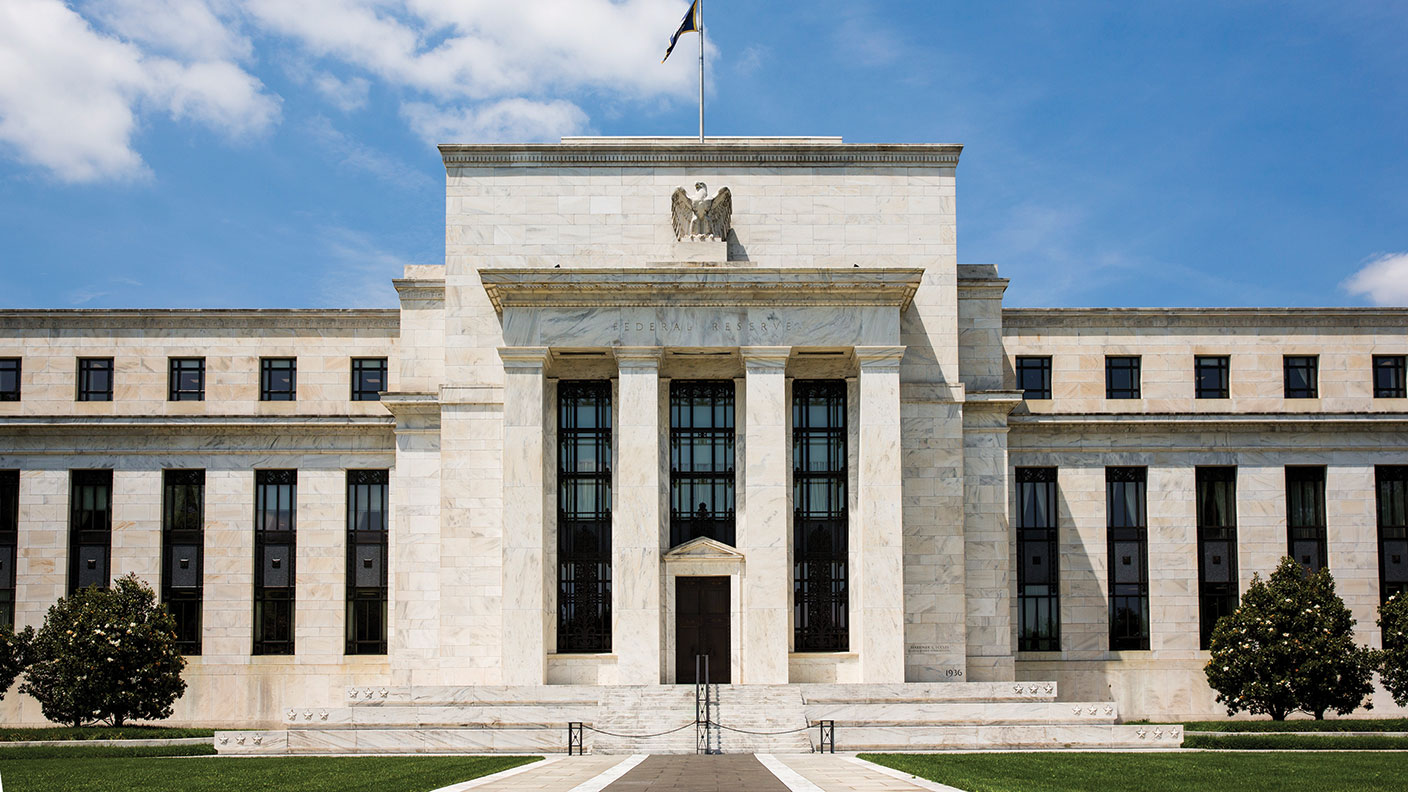The European Central Bank throws away the rulebook to bail out Italy
The ECB has removed all constraints on asset purchases and will now buy “whatever it takes” to tackle the coronavirus. John Stepek explains what it means for Europe and for global markets.


Get the latest financial news, insights and expert analysis from our award-winning MoneyWeek team, to help you understand what really matters when it comes to your finances.
You are now subscribed
Your newsletter sign-up was successful
Want to add more newsletters?
Central banks, alongside governments, are going all-out to tackle the disruption being caused by the coronavirus outbreak. We’ve had “Save our Small Businesses” from the Bank of England. We’ve had “QE Infinity-plus” from the Federal Reserve. We’ve had “Let’s Become the Biggest Shareholder in Japan Inc” from the Bank of Japan.
And now we’ve got the most controversial of them all – “Operation Bailout Italy” from the European Central Bank.
What’s the difference between fiscal policy and monetary policy?
Last week, the European Central Bank announced plans to buy another €750bn of bonds (via quantitative easing – ie, printing money) in order to underwrite the region’s economy.
Try 6 free issues of MoneyWeek today
Get unparalleled financial insight, analysis and expert opinion you can profit from.

Sign up to Money Morning
Don't miss the latest investment and personal finances news, market analysis, plus money-saving tips with our free twice-daily newsletter
Don't miss the latest investment and personal finances news, market analysis, plus money-saving tips with our free twice-daily newsletter
Now, QE was always controversial in the eurozone. Ultimately, it’s a form of monetary policy that very much crosses the line into fiscal policy territory.
Let’s take a step back and explain that for a moment. Put simply, monetary policy is stuff the central bank does. The elected government gives the central bank a job. That job is to keep inflation at a certain level, or employment at a certain level, or both, depending which central bank you’re talking about. The central bank then does that job by moving interest rates up and down.
That’s it. It’s a deceptively simple job and it doesn’t involve doing anything other than trying to stick to the rules the elected government has laid down for you.
Fiscal policy is stuff that governments do. That’s because it typically involves the redistribution of money. So this is things like tax policy and welfare and infrastructure spending. The key is that fiscal policy is really all things that voters, via democratically elected governments, should be giving the nod to.
In practice, the line is blurred anyway. If you cut interest rates, you take from one group (savers) and give to another (debtors). But having an explicit target means you can say: “just doing my job, guv”.
So why does QE blur the line so much? Because it takes us much further into the realm of picking winners and losers. It’s still hotly contested (mostly by the people behind the policy) but QE tends to boost asset prices and thus deliver gains for people who own assets. That means it arguably increases wealth inequality, for example.
And to the extent to which it is inflationary (also hotly disputed), it favours certain groups (debtors) over others (savers). So if you’re going to take steps that are as radical as this, then arguably there needs to be some democratic oversight.
The reality is that this doesn’t matter in most countries, because the idea of central bank independence is a convenient figleaf. When push comes to shove, the central bank is an arm of the government and it does what the government wants. This is not a conspiracy theory, this is just very clearly the nature of things.
Unfortunately for the eurozone, it matters a lot more there, because the European Central Bank (ECB) is the central bank (the one that really matters) for several countries. And not all of them agree on the course of action that it should take.
Moreover, if you are picking winners and losers then it means that (whether in reality or merely in popular perception), some countries are going to be bigger winners and others are going to be bigger losers.
Even when the ECB was merely shifting interest rates up and down in the days before the financial crisis, there was a level of tension involved. Rate policy tended to be set with the dominant German economy in mind. This was struggling at the time, which meant that much of the time rate policy was far too loose for the likes of Spain and Ireland, who saw property booms as a result.
Now that money printing and other radical measures are on the cards, it’s far more controversial.
The European Central Bank rips up the rulebook
So what’s happened now? Well, when QE was first introduced to the eurozone, the ECB had limits on what it could do. The central bank said that it would not buy more than a third of any country’s eligible bonds.
That, as the FT points out, “was put in place to ensure that the ECB does not buy so many bonds that it is accused of directly funding national governments, which is against EU law.”
Problem is, markets are vicious things when they spot a loophole. The coronavirus crisis has raised fresh concerns about the solvency of certain eurozone countries – Italy most prominently.
Italy has to spend a lot of money to get over this and it’s also going to be whacked with a massive recession. It was never a healthy economy in the first place and it has vast levels of government debt (that said, in many ways France is in a far worse state, but that’s a story for another time).
Anyway – so a key indicator of distress in the eurozone has been that Italian government debt has started to yield a lot more than German government debt (the “spread” has widened). And you can see the problem here. The closer that the ECB got to its one-third limit, the harder the market would have pushed the matter.
The ECB couldn’t let that happen – particularly after new boss Christine Lagarde messed up badly by arguing that the spreads were of no concern of the ECB at a recent press conference.
And so it has tossed the one-third rule aside. I suppose you could say that it will now buy “whatever it takes”.
As Frederik Ducrozet at Pictet put it: “In a nutshell, the decision removes virtually all constraints on asset purchases, in a further boost to the credibility of the ECB’s commitment.”
Italian government debt and Greek bonds surged in price (ie, yields fell). This is unsurprising, as essentially the eurozone now has one single lender of last resort, with ultimately unlimited buying power, standing behind all debt issuance in the eurozone. Suddenly the “convergence trade” (where all countries are basically Germany) makes sense again.
What does this mean? For me, it kicks out another pillar of the “deflationist” argument. The potential collapse of the eurozone has been the biggest deflationary risk in the years following the global financial crisis. But if the ECB is effectively underwriting the financial system in the same way as the Fed and the Bank of Japan and the Bank of England, then this won’t happen.
That’s not to say that the eurozone might not disintegrate for political reasons as these crisis-led steps to ever-closer integration are pushed through without voters really quite grasping what’s going on. But that’s an issue further down the line.
Right now, everyone is too worried about the impact of coronavirus to raise huge objections and even Germany is turning on the spending taps.
The helicopters are taking off all over the world. Will inflation follow? I suspect it's only a matter of time. And what does it all mean for markets? I’ve given our view in the latest issue of MoneyWeek magazine, which comes out tomorrow. Subscribe now to get your first six issues free.
Get the latest financial news, insights and expert analysis from our award-winning MoneyWeek team, to help you understand what really matters when it comes to your finances.

-
 Financial education: how to teach children about money
Financial education: how to teach children about moneyFinancial education was added to the national curriculum more than a decade ago, but it doesn’t seem to have done much good. It’s time to take back control
-
 Investing in Taiwan: profit from the rise of Asia’s Silicon Valley
Investing in Taiwan: profit from the rise of Asia’s Silicon ValleyTaiwan has become a technology manufacturing powerhouse. Smart investors should buy in now, says Matthew Partridge
-
 How a dovish Federal Reserve could affect you
How a dovish Federal Reserve could affect youTrump’s pick for the US Federal Reserve is not so much of a yes-man as his rival, but interest rates will still come down quickly, says Cris Sholto Heaton
-
 New Federal Reserve chair Kevin Warsh has his work cut out
New Federal Reserve chair Kevin Warsh has his work cut outOpinion Kevin Warsh must make it clear that he, not Trump, is in charge at the Fed. If he doesn't, the US dollar and Treasury bills sell-off will start all over again
-
 'Investors should brace for Trump’s great inflation'
'Investors should brace for Trump’s great inflation'Opinion Donald Trump's actions against Federal Reserve chair Jerome Powell will likely stoke rising prices. Investors should prepare for the worst, says Matthew Lynn
-
 How have central banks evolved in the last century – and are they still fit for purpose?
How have central banks evolved in the last century – and are they still fit for purpose?The rise to power and dominance of the central banks has been a key theme in MoneyWeek in its 25 years. Has their rule been benign?
-
 'Governments are launching an assault on the independence of central banks'
'Governments are launching an assault on the independence of central banks'Opinion Say goodbye to the era of central bank orthodoxy and hello to the new era of central bank dependency, says Jeremy McKeown
-
 Do we need central banks, or is it time to privatise money?
Do we need central banks, or is it time to privatise money?Analysis Free banking is one alternative to central banks, but would switching to a radical new system be worth the risk?
-
 Will turmoil in the Middle East trigger inflation?
Will turmoil in the Middle East trigger inflation?The risk of an escalating Middle East crisis continues to rise. Markets appear to be dismissing the prospect. Here's how investors can protect themselves.
-
 Federal Reserve cuts US interest rates for the first time in more than four years
Federal Reserve cuts US interest rates for the first time in more than four yearsPolicymakers at the US central bank also suggested rates would be cut further before the year is out